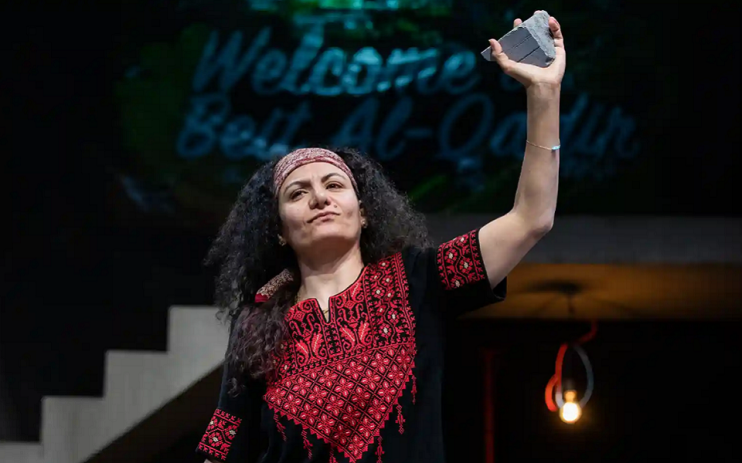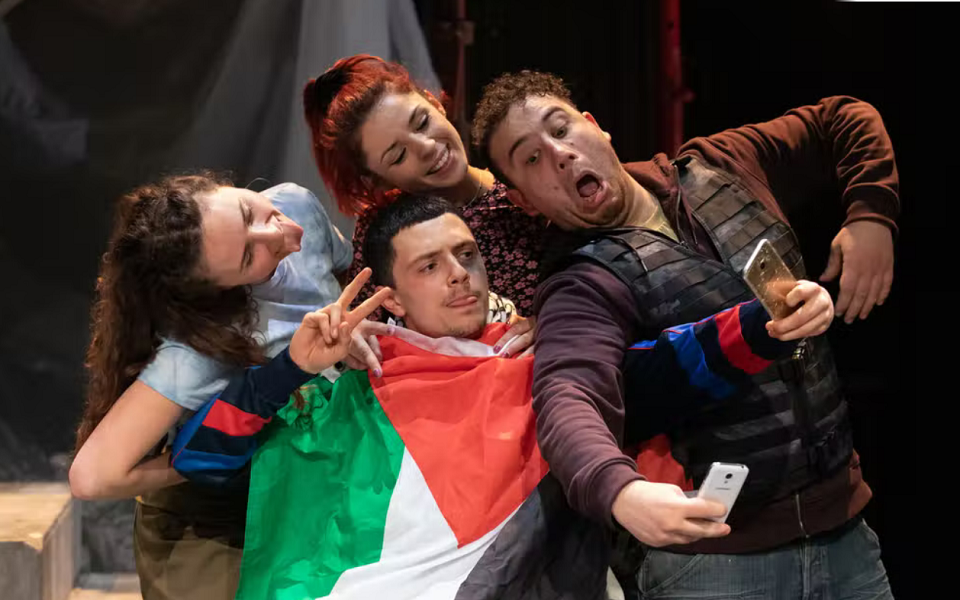Two Palestinians Go Dogging, review: Touching portrait of the tragedy of conflict

Let’s be clear on this from the get-go: finding comedy in the Israel-Palestine crisis is an incredibly brave thing to do. Not only that, it requires incredibly astute writing. Sami Ibrahim has achieved both of these things with two Palestinians go dogging, a personal and political new play littered with thrillingly perverse laughs.
If Ibrahim’s provocative title tempts you, dear reader, go forth and buy tickets – like a voyeur sitting in a car with the headlights turned on, you’ll get your fair share of dogging. But here, dogging’s not just about sex: it’s used by Ibrahim, a relative newcomer who is half-Palestinian, as a prop to bring out the humanity in the steeliness of war.
In the play, men and women from both sides risk their lives to meet for the thrill of dangerous sex. Some lose their lives when they’re caught and shot by Israeli soldiers. If Ibrahim’s suggestion seems to be that dogging is controversial, the point is that it’s the opposite: raunchy sex ends up feeling banal for Reed, played by Hala Omran, and her husband Sayeed, Miltos Yerolemou, the play’s central couple faced with the daily backdrop of lost lives and bombing. Rather, dogging is just a way to feel alive, a “thrill” as characters call it, a way to escape.

Ibrahim’s piece has a vivid and diverse selection of Palestinians, young and old, split across more than twenty vignettes dealing with everything from mundane daily exchanges to killings. There’s even an Israeli too, Adam (Philipp Mogilnitskiy), who the audience reluctantly empathises with . “We lost a daughter, they lost a soldier,” Reem says during one fraught exchange with Adam, spelling out her perspective about loss and posing wider questions about the value of life of soldiers on both sides of the conflict.
Director Omar Elerian comes up with all sorts of jarringly effective images to bring the horrors of the crisis into the theatre, including a wheelbarrow full of white bricks to represent the disparity of lives lost between the two sides.
There’s comedy throughout, often by way of the play’s most youthful and likeable character Jawad, who has also committed the play’s most heinous crime. Still, he’s forgiven by the audience immediately, the message being that desperation can lead us to take desperate actions. Luca Kamleh Chapman, making his stage debut, brilliantly embodies how confusing all this horror must be amid the throws of youth and testosterone.
It’s blistering stuff and it never loses track of its agenda to celebrate the lives of these men and women. In another scene, Jawad is slapped by an Israeli but then the scene turns into an incredibly moving poetic, choreographed dance. It’s a microcosm of the whole show; brute violence is a daily part of life and, to quote Gen Z, ‘we move.’ We must dance – life goes on.
Two Palestinians go dogging plays at the Royal Court Upstairs until 1 June
